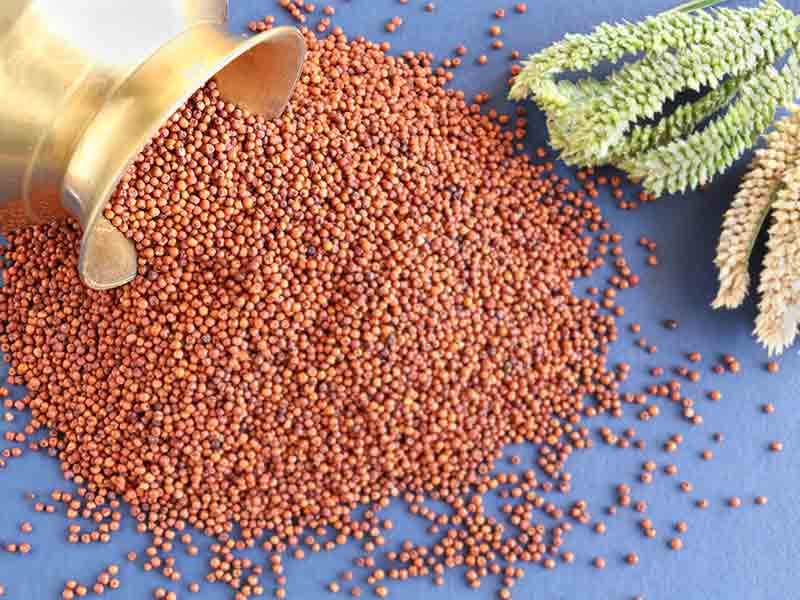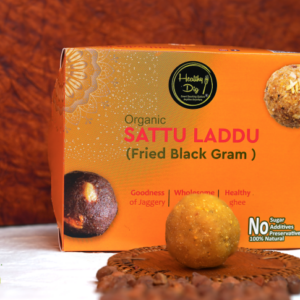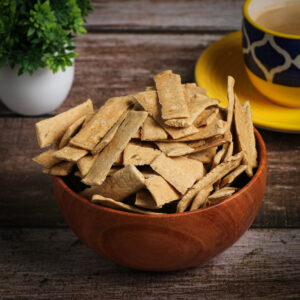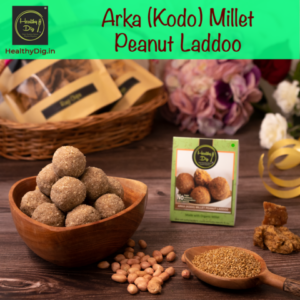It has notable beneficial properties such as anti-diabetic, anti-diarrheal, antiinflammatory, antioxidant, antimicrobial and cancer protective among many others. Its importance lies in its high calcium content as it is one of the best non-dairy sources of calcium. Calcium is an important mineral for healthy bone growth and development, making ragi flour suitable for use in weaning foods for infants. Varieties of ragi have abundance of polyphenols including proanthocynadins. These polyphenols aid ragi in acting as an antioxidant, anti-aging agent. Ragi also contain plant protease inhibitors which are a part of a number of important biological functions. They are shown to inhibit cancer progression at various stages and provide ragi with anti-proliferative properties. Ragi promotes weight loss, helps to lower cholesterol, reduces blood pressure, helps to reduce skin aging, improves lactation post childbirth, prevents anaemia and promotes hair growth.
It is also gluten free and a good choice for vegans. However, despite all its benefits, ragi is an underutilised grain with the potential for greatness. Its high fiber content and low GI make it an ideal snack food item.





Recent Comments